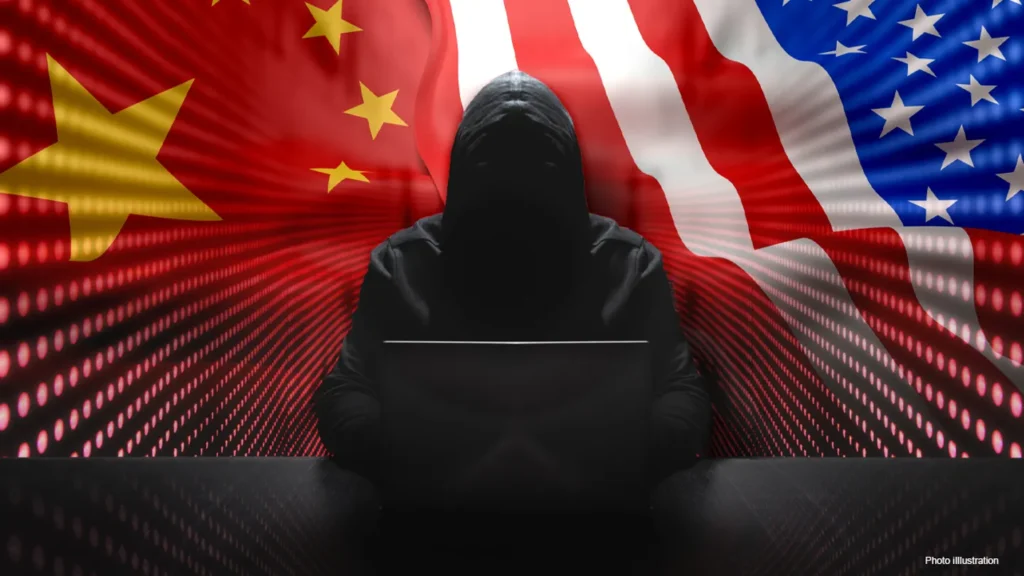China Hacked US. Treasury: Access to Sensitive Data
Confirmation of China’s Access to Sensitive U.S. Treasury Workstations
The digital arena has become the new front line for global power struggles, and the recent revelation of a “major” cyberattack on the U.S. Treasury has heightened concerns of an escalating conflict. Officials have pointed to China-backed hackers as the culprits behind this alarming breach, marking yet another clash in the tense relationship between these two global superpowers. The phrase “China hacked US” is no longer a rare headline—it’s a recurring theme that underscores the fragility of international cybersecurity.
As Beijing vehemently denies the allegations, calling them “groundless,” the attack raises serious questions about the stability of the digital landscape. With accusations flying in both directions, including China’s claims of U.S. cyber intrusions targeting its tech firms, the stage is set for what could become an all-out cyberwar. Are these skirmishes isolated events, or do they signal the beginning of something far more consequential?
- China vs. US: Is a Full-Blown Cyber War Brewing After Treasury Hack?
The digital age has turned geopolitical rivalries into cyber battlegrounds, and the latest salvo has raised global eyebrows. In a dramatic revelation, the U.S. Treasury confirmed it was the target of a “major” cyberattack, with officials alleging that China-backed hackers orchestrated the breach. The attack struck at the core of America’s financial infrastructure, amplifying fears of a brewing cyber conflict. Meanwhile, Beijing has swiftly dismissed the allegations as “baseless,” intensifying the tension.
This isn’t an isolated incident. The Treasury hack marks the latest in a series of escalating cyber exchanges between the two superpowers. Just recently, China accused the U.S. of conducting cyber operations targeting its tech giants. With “China hacked US” narratives gaining traction, many are left questioning if these digital skirmishes signal the dawn of a full-blown cyberwar between the world’s leading economies.
As accusations and counter – accusations fly, the line between defense and retaliation grows ever blurrier. Could this Treasury hack be the tipping point? Or is it just another chapter in an ongoing saga of digital brinkmanship? Either way, “China hacked US” is becoming more than a headline—it’s a wake-up call for the global community.
- Who’s Behind the Treasury Breach?
The Treasury Department dropped the details in a letter to Congress, laying out how hackers, allegedly sponsored by the Chinese state, snuck into their system. They exploited a vulnerability in a third-party cybersecurity provider called BeyondTrust, which many Treasury employees use for remote tech support. By overriding a security key, the attackers gained access to employee workstations and unclassified documents.
While the Treasury hasn’t revealed the full extent of the damage—like how many workstations were compromised or what specific files were accessed—they did confirm that the attack was initiated by a “China-based Advanced Persistent Threat (APT) actor.” It was discovered on December 8th, although Beyond Trust reportedly noticed suspicious activity as early as December 2nd.
- Damage Control and Investigation
The good news (if you can call it that) is that the Treasury says there’s no evidence the hackers are still lurking in their systems. They’ve taken the compromised BeyondTrust system offline and are working with the Cybersecurity and Infrastructure Security Agency (CISA) and the FBI to assess the full impact. It’s being treated as a “major cybersecurity incident,” and a more detailed report will be sent to Congress in 30 days.
“Over the last four years, Treasury has significantly bolstered its cyber defense,” a department spokesperson stated, emphasizing their ongoing efforts to protect the financial system.
- China’s Response?
China is vehemently denying any involvement. Foreign Ministry spokesperson Mao Ning dismissed the accusations as baseless, stating that Beijing condemns all forms of cyberattacks. The Chinese embassy in the US echoed this sentiment, urging a “professional and responsible attitude” based on “sufficient evidence rather than unfounded speculation.“
- A History of Cyber Sparring
This isn’t the first time the US and China have traded cyber accusations. In fact, it’s becoming a regular occurrence
- December 18, 2023: China’s National Computer Network Emergency Response Technical Team (CNCERT/CC) claimed that two US cyberattacks since May 2023 attempted to steal trade secrets from Chinese tech companies.
- December 5, 2023: US Deputy National Security Advisor Anne Neuberger revealed that a Chinese hacking group, “Salt Typhoon,” had accessed communications of senior US officials, though classified info was reportedly safe.
- November 13, 2023: The FBI and CISA uncovered a large-scale Chinese cyberespionage campaign targeting individuals involved in government or political activity.
- Weeks before the recent US elections: The FBI launched a probe into reports of Chinese hackers targeting the mobile phones of prominent political figures.
- July 2023: Microsoft said the China-based group “Storm-0558” breached email accounts at about 25 organizations, including the US State Department.
- March 2023: The US and UK accused China of a massive cyberespionage campaign targeting millions, leading to sanctions against a Chinese company.
- February 2023: US authorities dismantled a China-backed hacker network called “Volt Typhoon.”
- March 2022: China claimed it was hit by a wave of cyberattacks, many traced back to US addresses.
- Why All the Cyberattacks?
State-sponsored hackers are often used to gain an edge, whether it’s stealing confidential data and trade secrets or disrupting critical infrastructure. “The US and China have a history of using cyber defense to further their national security aims,” explains Rebecca Liao, Co-Founder and CEO of Saga, a web3 protocol, and former advisor to both the Biden and Hillary Clinton presidential campaigns on China, technology, and Asia economic policy. She points out that while spying on state actors is somewhat accepted, the US has protested against what it sees as China’s excessive cyberattacks on American businesses.
As technology advances, cyberattacks are skyrocketing globally. Data from the German Institute for International and Security Affairs (SWP) shows a jump from 107 incidents in 2014 to a staggering 723 in 2023.
- Can We Stop the Cyber War?
Experts suggest that the US and China should lead the way in creating a treaty for responsible cyberspace conduct, similar to the SALT I and SALT II treaties that limited nuclear weapons during the Cold War. Others call for advancements in quantum computing to make cyberattacks more difficult.
Victor Atkins, a fellow with the Atlantic Council’s Indo-Pacific Security Initiative, proposes that the US create a new multilateral cyber threat intelligence sharing coalition in the Indo-Pacific to counter Chinese cyber threats.
However, as Liao notes, past attempts to establish international cybersecurity standards have failed. “It is up to each individual country to protect against cyberattacks,” she says.
For now, nations are investing heavily in cybersecurity infrastructure like firewalls and conducting simulated cyberattack drills to prepare their defenses. But with tensions high and the stakes even higher, the question remains: can we prevent this digital sparring from turning into an all-out cyber war? Only time will tell.
What do you think? Are we on the brink of a cyberwar? Let us know in the comments
- Are China and the US Heading Toward a Cyber War?
The recent cyberattack on the U.S. Treasury, allegedly orchestrated by China-backed hackers, has spotlighted the growing digital tensions between two of the world’s biggest economies. Exploiting vulnerabilities in Beyond Trust software, hackers accessed critical U.S. financial systems, sparking fears of a larger cyber escalation. While China denies involvement and labels the accusations baseless, this incident is part of an ongoing series of cyber clashes that underline the fragile state of global cybersecurity.
As both nations trade allegations and bolster their defenses, experts warn of a potential cyber war unless international agreements or robust cybersecurity measures are implemented. For now, the digital battlefield remains active, leaving the world to question how long this cyber sparring can continue before it escalates further.
Stay tuned for more updates on global cybersecurity at trendsnip
About the Author
Michael
Administrator
Michael David is a visionary AI content creator and proud Cambridge University graduate, known for blending sharp storytelling with cutting-edge technology. His talent lies in crafting compelling, insight-driven narratives that resonate with global audiences.With expertise in tech writing, content strategy, and brand storytelling, Michael partners with forward-thinking companies to shape powerful digital identities. Always ahead of the curve, he delivers high-impact content that not only informs but inspires.







